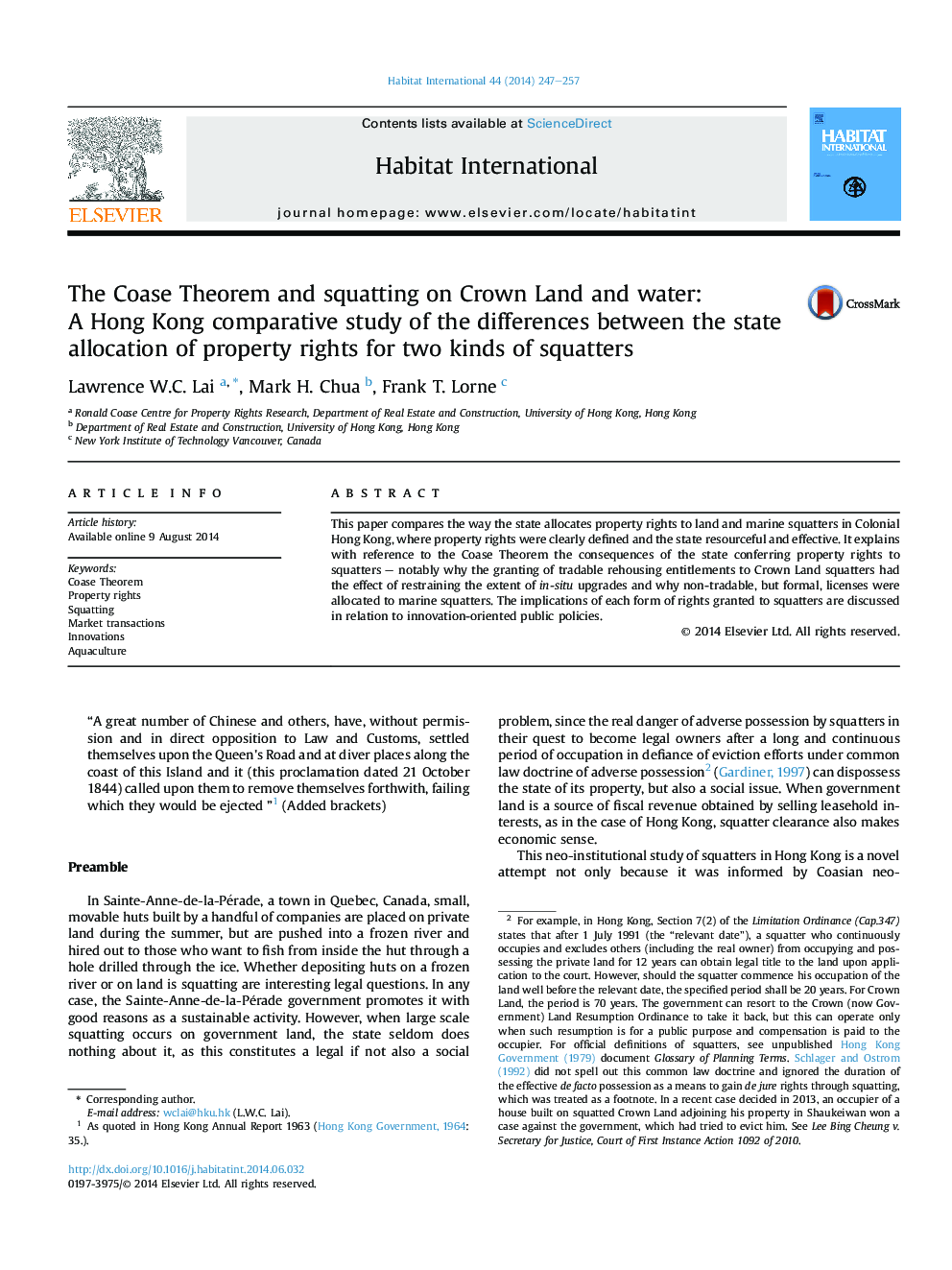| Article ID | Journal | Published Year | Pages | File Type |
|---|---|---|---|---|
| 1047772 | Habitat International | 2014 | 11 Pages |
•Original joint consideration of marine and land squatting in terms of a property right framework.•Rehousing entitlements substitute upgrading of squatter settlements.•Implications of each form of rights granted to squatters discussed in relation to innovation-oriented public policies.
This paper compares the way the state allocates property rights to land and marine squatters in Colonial Hong Kong, where property rights were clearly defined and the state resourceful and effective. It explains with reference to the Coase Theorem the consequences of the state conferring property rights to squatters – notably why the granting of tradable rehousing entitlements to Crown Land squatters had the effect of restraining the extent of in-situ upgrades and why non-tradable, but formal, licenses were allocated to marine squatters. The implications of each form of rights granted to squatters are discussed in relation to innovation-oriented public policies.
